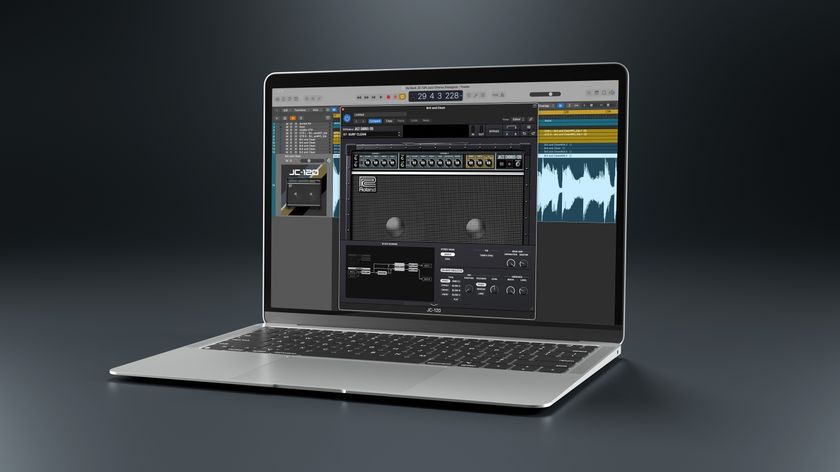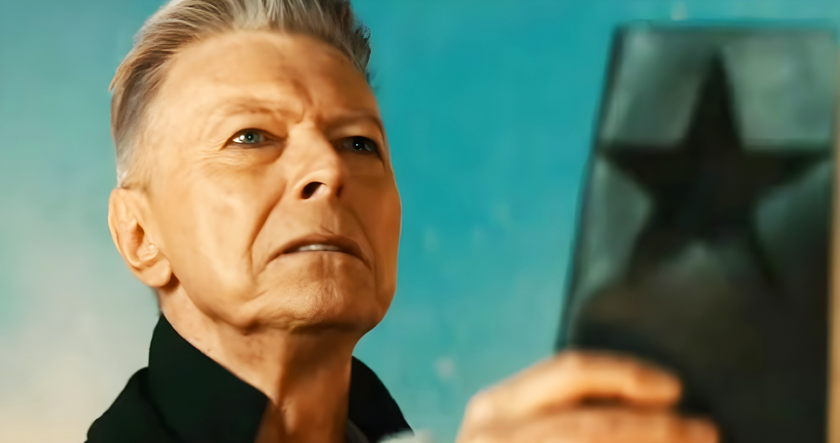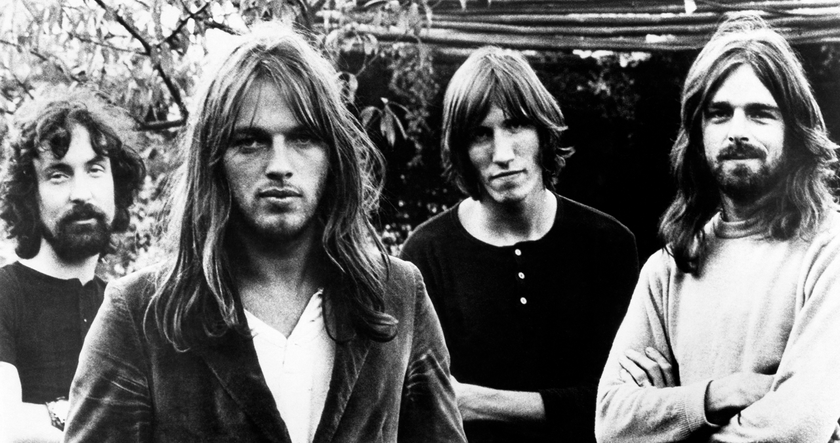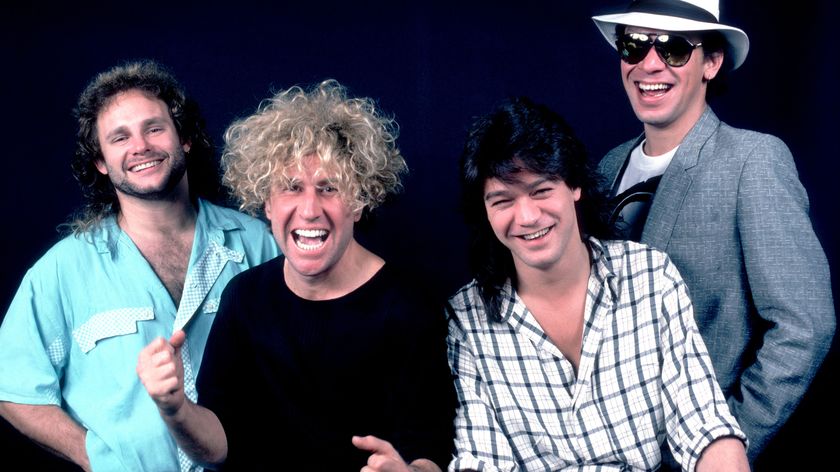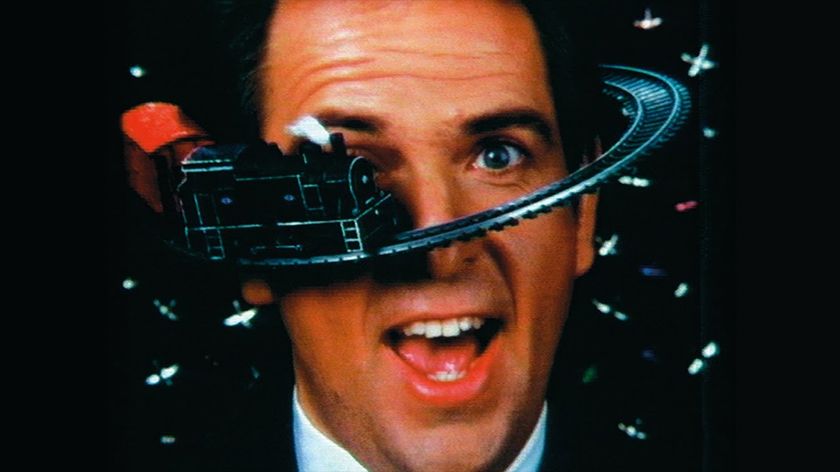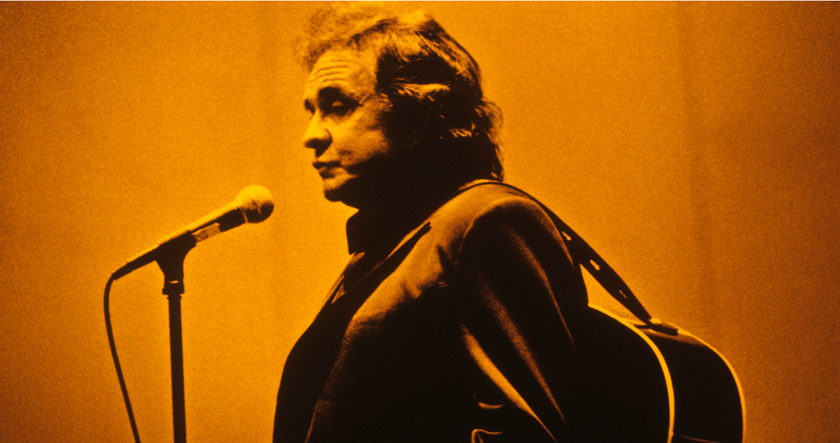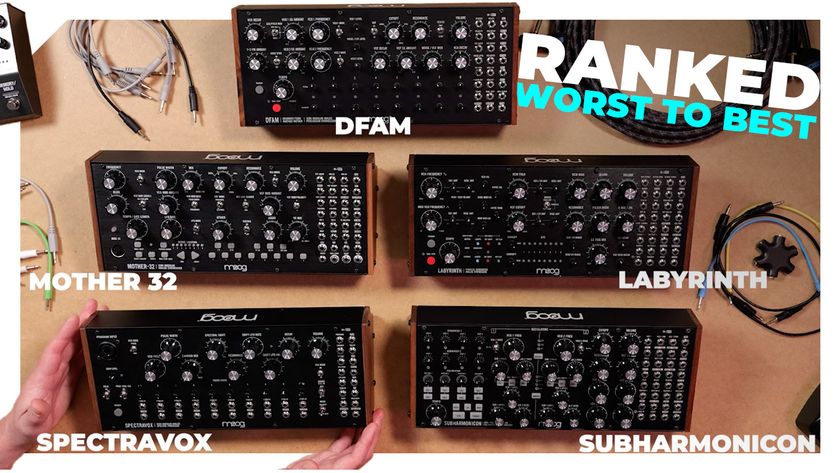“It was the first kind of rock monster that we'd created”: How an explosive 2001 switch-up revealed just how ferocious Muse could get
The juggernaut of a riff proved Muse’s mettle, setting the stall for a stadium-filling future

In the wake of the Britpop era, the UK’s homegrown rock tastes had settled into a relatively comfortable niche. A certain dullness had crept into the gulf. Some have even gone as far as to characterise British rock in the early 2000s as the heyday of ‘big empty ballads about nothing’.
The dawn of the new millennium had found many of Britain’s biggest rock offerings delivering broadly serviceable - yet toothless - indie ballads. Inoffensive enough to garner radio play and land well on the festival circuit.
But the heat and intensity that defined many of Britpop’s most passion-stoking moments had long run out of steam.
This was the industry landscape that Teignmouth band Muse, who’d first garnered moderate success with their 1999 debut Showbiz, were trying their best to navigate as the 21st century found its feet.
While an initial tranche of intriguing singles - Muscle Museum, Sunburn and Unintended - had seen them seizing the quirky baton of Bends-era Radiohead, married to a histrionic vocal sensibility not a million miles from Jeff Buckley, their releases to date had largely found the three-piece holding back on their ambitious instincts.
But Muse had long been more drawn to the heftier-end of alternative rock and metal.
They were itching to get loud.
The Song: Muse - New Born
The Magic Moment: 01:23 - The arrival of the colossal fuzz-soaked riff, and the song’s swing into a metal-tinged monster
Get the MusicRadar Newsletter
Want all the hottest music and gear news, reviews, deals, features and more, direct to your inbox? Sign up here.
The Origin
Formed in the small Devonshire seaside town of Teignmouth in the mid-1990s, Muse had long been capable of getting considerable volume out of a relatively small number of members.
Drummer Dominic Howard, bassist Chris Wolstenholme and guitarist, keyboardist, vocalist (and all-round musical polymath) Matt Bellamy had realised that they shared a musical synergy after finding each other at college.
The young band’s relentless, self-imposed touring schedule had gradually fostered a number of admirers. Amongst them, the UK label Taste Media.
Signing to Taste, the band’s 1999 debut, Showbiz laid bare the extraordinary musical versatility that Bellamy, Wolstenholme and Howard were capable of.
While some were entranced, others were more cynical.
Radiohead comparisons in particular were a constant source of frustration. “As far as that ‘other band’ are concerned, I like a couple of songs here and there, but that's as far as it goes, really,” a frustrated Bellamy told Q in 2000. “They don't do much for me. Personally speaking, I don't think we sound anything like them at all.”
Further dissatisfaction came from the pressure to present a more sanitised version of themselves on-record. A singular ire when their live performances were growing ever more incendiary.

For Showbiz’s follow-up, Bellamy was keen to widen the band’s scope on numerous fronts. One of which being to expose that more feral spirit; “Our ambition I suppose was to show the side of the band that had not been seen so far, but definitely a part of the band that was [more] progressive, the harder rock elements and I suppose the slightly more eccentric elements as well,” Bellamy remembered to XFM in 2007.
While Britain’s homegrown rock was stuck in its safe quagmire, over in the US, nu-metal’s marrying of the then-hugely popular hip-hop with the punch of drop-tuned guitar rock had seen a few key acts become household names.
The likes of Limp Bizkit had successfully brought weighty guitar riffs into a mainstream space. A zone where many listeners would typically never encounter them.
While nu-metal was lapped up by many an alternative rock-loving teen in Britain, it was hugely out of step with what Britain's rock gatekeepers deemed acceptable.
But, influenced by many of rock’s biggest riff-purveyors (particularly AC/DC and Rage Against the Machine), Bellamy was keen to deploy his own guitar hero chops - an element which was key to the band’s live sets - into Muse's next album.
“I'd say we are definitely louder, heavier, better,” Bellamy was quoted as saying as part of the official press release for the album - titled Origin of Symmetry - back in 2001. “But that's a sweeping generalisation. There's new songs [that] will surprise everyone, songs which come from a totally different angle. We're choosing to do something a bit more special, to bring out music that's totally new and challenging. Fashion will have to come to us."

In an effort to capture the often unpredictable savagery of their live performances, the first clutch of songs - Plug In Baby, Bliss, Darkshines and New Born - were initially tracked entirely live with producer Dave Bottrill. Eventually the band returned to the warm embrace of Showbiz-producer John Leckie to shape the record into its final form.
John was surprised at how much tougher the band had become since the Showbiz sessions.
“They went out [to] Europe and supported the Foo Fighters and maybe the [Red Hot] Chili Peppers,” Leckie told XFM. “When they came back they were different men - they were just changed people. They were so overcome with confidence. They just had craziness. They were just ready for anything.”
Amongst the developing batch of songs, two in particular stood out.
First, there was the obvious brilliance of that ambidextrous harmonic minor-scale riff that weaved throughout Plug In Baby.
Quickly put out as a single, and fizzing with a bouncy energy, it would soon become the band’s new signature.
But while idiosyncratic, the intricate, classical music infused Plug In Baby still had one foot in the Showbiz-era's more radio-conscious sensibilities.
It was the album’s opening gambit that saw Muse finally bare their teeth.
New Born pivoted dramatically from a delicate introduction into something way more aggressive than the band had ever captured on-record before.
Beginning with a twinkling piano arpeggio, New Born’s zig-zaggy piano motif in E minor established an unnerving mood.
Bellamy delivered a close-mic’d vocal as the rhythm-section gently aided the rising tension with a pressure-feeding setting of the pace. Wolstenholme's circular bass part subtly priming for a dramatic change.
And then, rising out of the gloom of New Born’s creepy overture, an absolute serpent of a riff was unfurled.
Dripping in fuzz (courtesy of Bellamy’s recently tailor-made Manson ‘Delorean’ guitar, which had Z.Vex’s Fuzz Factory built into it), Bellamy's drop-D riff streaked across the arrangement. Whizzing through a single note movement. It sounded both precise yet filthy.
Hijacking the song, the riff dictated a gargantuan energy that Howard and Wolstenholme soon matched. The tension of the intro was released - and then some.
New Born reared up into a heavy-rock work out. A near-tidal wave of sound.
Released as a statement-of-intent single ahead of the parent album two weeks prior, on June 4th 2001, New Born’s swing into unprecedented levels of ferocity proved exactly who Muse really were.
It also revealed that their ambitions far exceeded that of the radio-pleasing contemporaries. Heralding an album of many more surprises.
“Goodbye, little British indie band. Goodbye inhibitions,” boldly asserted the Origin of Symmetry press release.
Why It's Brilliant
With that huge, chaotic riff and New Born's resulting brutality, Muse markedly stepped away from the post-Britpop faction, and asserted themselves as something much tougher than their radio-pleasing contemporaries.
For Britain’s hoodie-clad alternative crowd, perpetually gazing across the pond for their heavier kicks, Muse suddenly became the British band of note.
But, excitingly, it was still housed in a form that was (just about) able to impact on the mainstream.
Watching their New Born performance on Top of the Pops at the time, this writer can attest to how breathtaking it was to see Bellamy - with a shock of recently-dyed red hair - spiral into life.
Bellamy's feedback-wrangling prior to letting rip with that chainsaw of a riff was a simply breathtaking thing to behold on early evening television back in the summer of 2001. It was an incursion for the ages.
It was a thing of pure anarchic joy to witness the band utterly lay waste to a stage that was more used to the regular treadmill of sanitised pop and tepid indie acts.
Muse had successfully bottled their abrasive live energy, and launched it at an unsuspecting public.
“New Born was certainly huge. It was the first kind of rock monster that we'd created, I think,” drummer Dominic Howard told XFM in 2007. “[It was] the first big epic heavy over-the-top piece”.
Further cuts on Origin of Symmetry also served up similarly-sized guitar density. Namely the immense (drop-A!) riffs of album standout Citizen Erased and Bliss's relentless pound.
That same ballsy ambition to get louder, would also lead the band to widen their attitude to music-making in general.
Many songs on the record veered into proggier territory, establishing an expansive attitude that would be further charted on 2003’s Absolution and 2006’s Black Holes and Revelations.
By that point, the band were regularly headlining stadiums.
“I've always seen them as a 21st century band in the 20th century,” Leckie recalled to XFM. “They were totally modern, they were the first modern band that were un-retro, that were trying not to be like a band that had been before."


I'm the Music-Making Editor of MusicRadar, and I am keen to explore the stories that affect all music-makers - whether they're just starting or are at an advanced level. I write, commission and edit content around the wider world of music creation, as well as penning deep-dives into the essentials of production, genre and theory. As the former editor of Computer Music, I aim to bring the same knowledge and experience that underpinned that magazine to the editorial I write, but I'm very eager to engage with new and emerging writers to cover the topics that resonate with them. My career has included editing MusicTech magazine and website, consulting on SEO/editorial practice and writing about music-making and listening for titles such as NME, Classic Pop, Audio Media International, Guitar.com and Uncut. When I'm not writing about music, I'm making it. I release tracks under the name ALP.
You must confirm your public display name before commenting
Please logout and then login again, you will then be prompted to enter your display name.

“Let them wallow in Walt Disney woke expectations”: John Lydon’s message to the reformed Sex Pistols
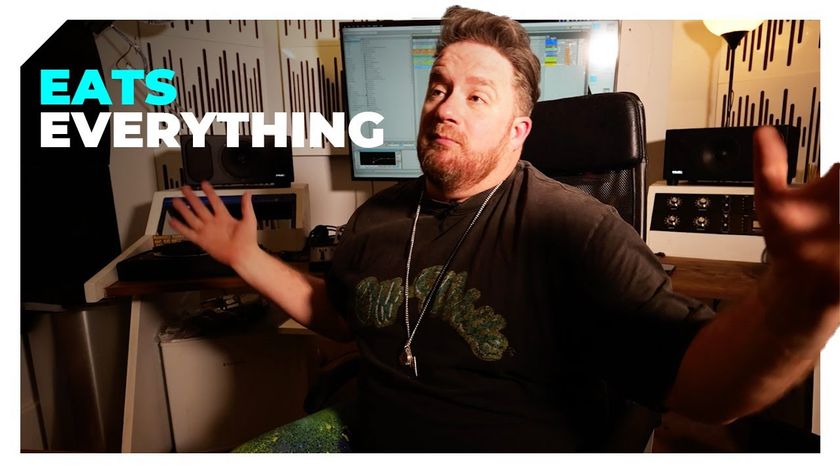
“Entrance Song is a massive 808 sub and a 909 kick. Those two shouldn’t work together - I’m not sure they were even in key”: Eats Everything on his ever-changing approach to production and DJing
![James Hetfield [left] and Kirk Hammett harmonise solos as they perform live with Metallica in 1988. Hammett plays a Jackson Rhodes, Hetfield has his trusty white Explorer.](https://cdn.mos.cms.futurecdn.net/mpZgd7e7YSCLwb7LuqPpbi-840-80.jpg)
